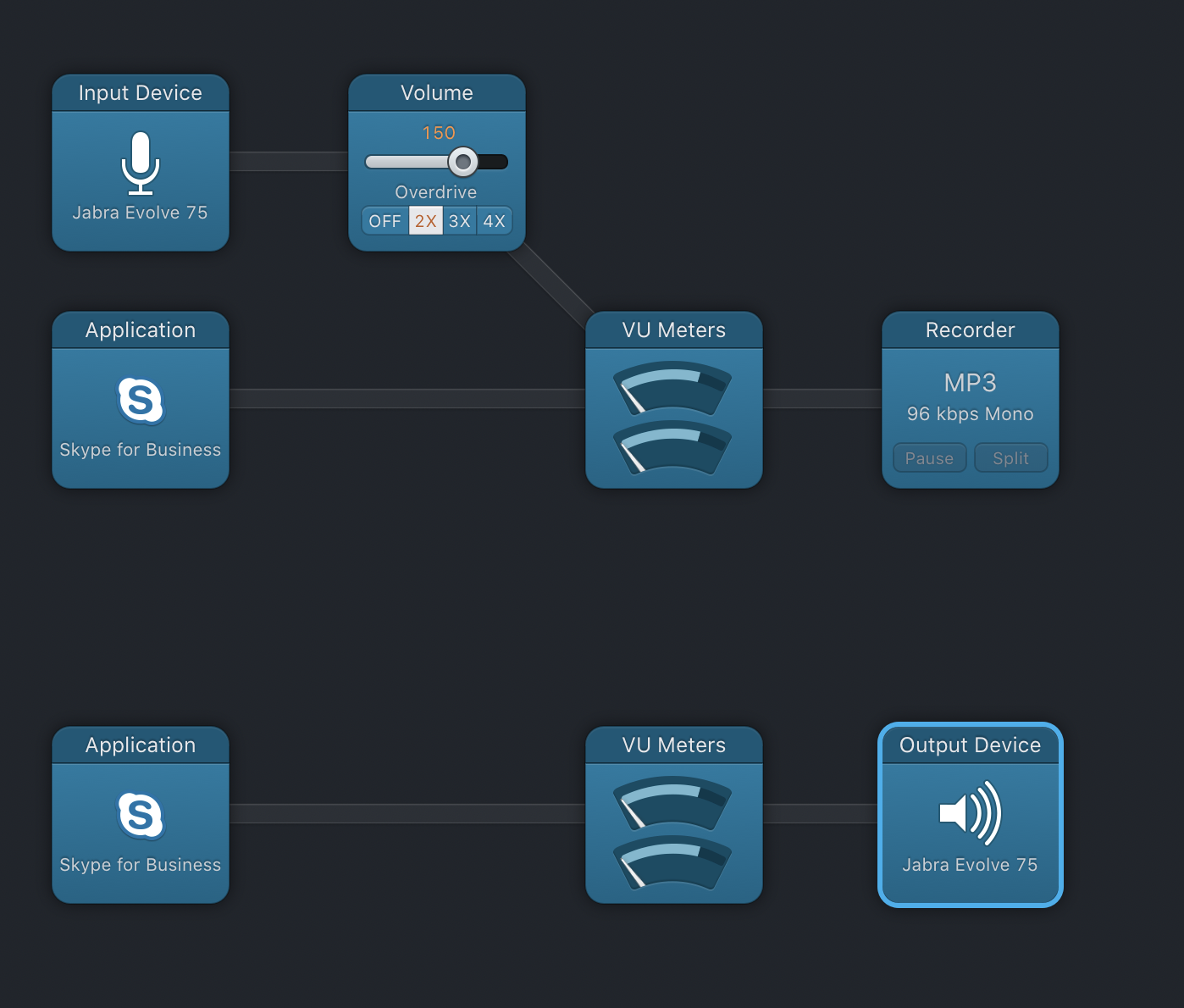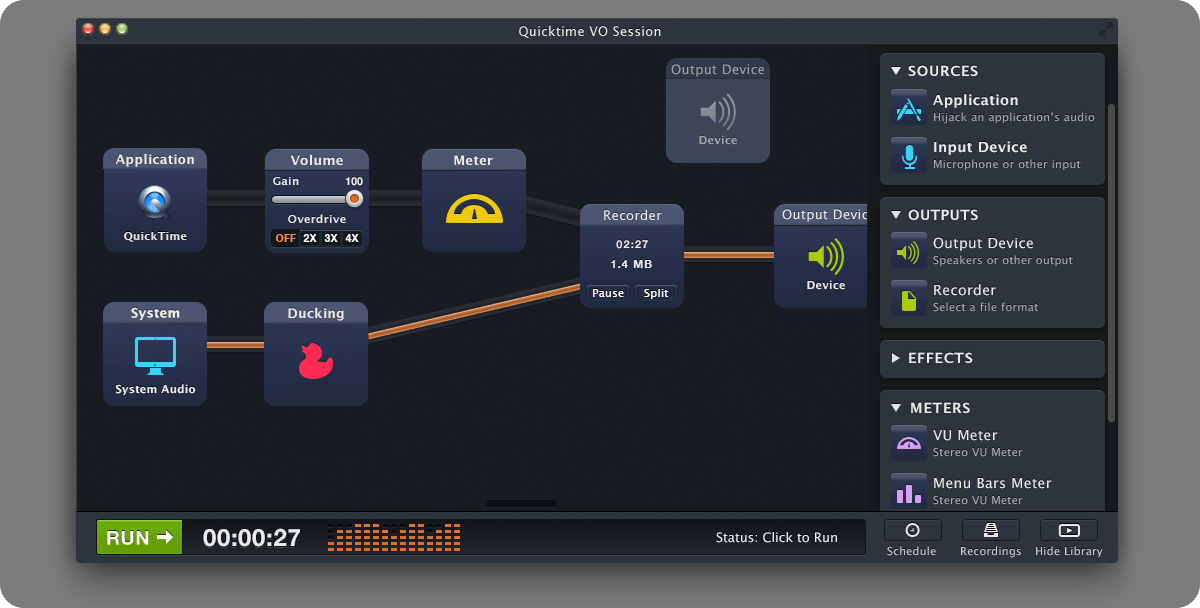

- #Audio hijack speed up my audio update
- #Audio hijack speed up my audio full
- #Audio hijack speed up my audio professional
- #Audio hijack speed up my audio series
- #Audio hijack speed up my audio tv
It’s important to be clear on the reasons for transferring vinyl assets to digital, since they are not deteriorating. Having completed that task – I no longer have any cassette tapes – I’ve been transferring a number of vinyl LPs. I started with all my cassette tapes, as they were physically deteriorating while they sat on the shelf. Transferring Vinyl LPs to Digital: One Approachįor some years now, I’ve been using my computer to transfer analog recordings to digital.
#Audio hijack speed up my audio series
#Audio hijack speed up my audio update
#Audio hijack speed up my audio tv
People generally tout a nice desk top or boom mounted mic, yet if you watch TV the hosts all use lavaliere mics and they sound fine. Separately, I have a general question about microphones. Any ideas for apps that will clean up your voice from the existing mic? I've also worked at changing the position to greatly soften the "esses" in the recording. Till now I've used an Audio Technica AT2020 USB mic with a pop screen. I make short videos for small numbers of our customers.

After hearing about it on an AppleInsider podcast I tried using the Spire app and was quite impressed (for an amateur) at how it made my voice sound. I'm curious what you think about using an app to clean up the sound from the iPhone mic.

You'll be amazed how much better your recordings will be with a couple simple improvements to the room and your technique. Once you have a handle on all that, THEN look into better equipment. Once you have a decent recording space, the next step is to work on mic placement and vocal technique. If you can leave some dead air space between the absorber and the hard wall, even better (in other words, hang the blankets six inches away from the wall instead of right against it).
#Audio hijack speed up my audio professional
Acoustically absorbent materials like blankets, cushions, stuffed furniture (and professional sound absorbing panels) all help reduce room reverberation.
#Audio hijack speed up my audio full
Bookcases full of different sized books help reduce slap echoes and smooth out the room reverberation. If you have a bit of budget but don't want to spend too much or permanently alter the room, look into theatrical curtains. Just hanging heavy blankets around the recording area will help a lot. The difference is night and day.įortunately you don't have to spend a fortune to get a room sounding good enough for a podcast. You don't realize just how reverberant a typical bedroom or living room is compared to an acoustically treated studio until you compare the same equipment on the same source in both. A microphone picks up whatever sound is present, and doesn't differentiate between the sound you want it to record and what you wish it wouldn't. The most obvious of these factors is room reflections (followed closely by poor mic technique). Listeners may not be able to articulate what exactly they're hearing, but not being able to put a name to the problem doesn't prevent them from hearing it. There a few factors that cue a listener that a recording is an amateur project and not high-quality professional.

That will make more difference than using the even the best microphone in the world. The single greatest thing you can do to improve your recordings is treat the room.


 0 kommentar(er)
0 kommentar(er)
